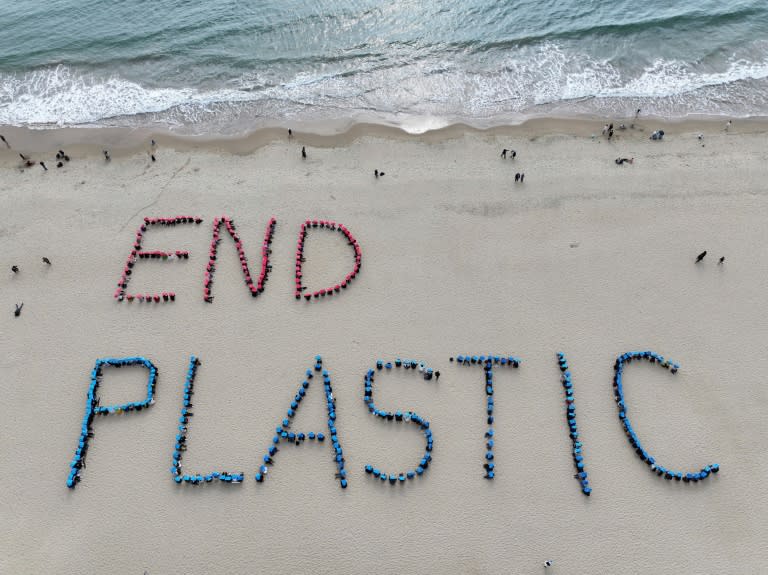Plastic pollution talks must speed up, chair warns

Negotiators must move "significantly" faster to reach a landmark treaty to curb plastic pollution, the diplomat chairing the talks warned Wednesday, as countries lined up to express frustration about the limited progress.
Nearly 200 nations are in Busan to agree by Sunday on a deal to tackle the millions of tonnes of plastic waste that end up in the environment each year.
They arrived in the South Korean city after two years of talks that laid bare deep divisions.
Addressing negotiators on Wednesday, Ecuadorian diplomat Luis Vayas Valdivieso warned work was not advancing quickly enough.
"I must be honest with you, progress has been too slow. We need to speed up our work significantly," he said on the third day of negotiations.
"We must accelerate our efforts."
His call was followed by a string of frustrated speeches from countries including Fiji, Panama, Norway and Colombia.
"While we sit here debating over semantics and procedures, the crisis worsens," warned Juan Carlos Monterrey Gomez, Panama's special representative for climate change.
"We are here because microplastics have been found in the placentas of healthy women... We are literally raising a generation that starts its life polluted, before taking its first breath."
He accused negotiators of "tiptoeing around the truth, sidestepping ambition and ignoring the urgency that demands action" in remarks that received loud applause.
- 'We are sincere' -
Other representatives accused some participants of failing to engage in good faith and actively seeking to drag out the talks.
They did not name countries directly, but diplomats speaking on condition of anonymity have repeatedly said Russia, Saudi Arabia and Iran are holding up proceedings and showing little willingness to compromise.
All three countries took the floor to hit back.
"We are sincere, we are honest and we are ready to cooperate," said Iran's Massoud Rezvanian Rahaghi.
"But we do not want to be blamed for blocking negotiations through dirty tactics."
Russian representative Dmitry Kornilov meanwhile blasted the "unacceptable" accusations and warned delegates to abandon the most contentious parts of the draft discussions.
"If we are serious about this then we must concentrate on provisions that are acceptable to all delegations," he said.
- 'Bold moves' -
The main faultline in talks lies over whether the treaty should address the full lifecycle of plastic, including potential limits to its production, chemical precursors and certain products considered unneccessary, including many single-use items.
The UN decision that kicked off the negotiating process explicitly refers both to the full lifecycle of plastic and sustainable consumption, but countries including Russia, Saudi Arabia and Iran have consistently rejected calls to limit supply.
Saudi Arabia has warned supply restrictions "extend beyond" the treaty's focus on plastic pollution and risk creating "economic disruptions".
Iran meanwhile has called for an article on supply to be removed entirely from the treaty text.
There are other sticking points, including financial support for developing countries to implement any treaty, and how a decision to adopt a deal should be made.
United Nations Environment Programme chief Inger Andersen acknowledged the "palpable frustration" expressed by many countries.
"It's very simple. We have to deliver this treaty by Sunday."
While the session exposed clear divisions, it also illustrated a growing consensus among a "majority", said Eirik Lindebjerg, WWF global plastic policy manager.
"The political reality is that the majority is just strengthening and uniting," he told AFP.
"And then the practical reality in the room is that they're just moving in circles because a handful of countries are not allowing progress."
The UN standard for environment deals has been consensus, but there are fears that a unanimous agreement may be out of reach.
A European diplomat, speaking on condition of anonymity, said divisions were so deep that an agreement would require "bold moves" in the final days of talks.
The question, he said, was "whether those moves, at that stage, will arrive too late."
"Four days to get to all that seems to me to be too little."
bur-sah/lb
Solve the daily Crossword

